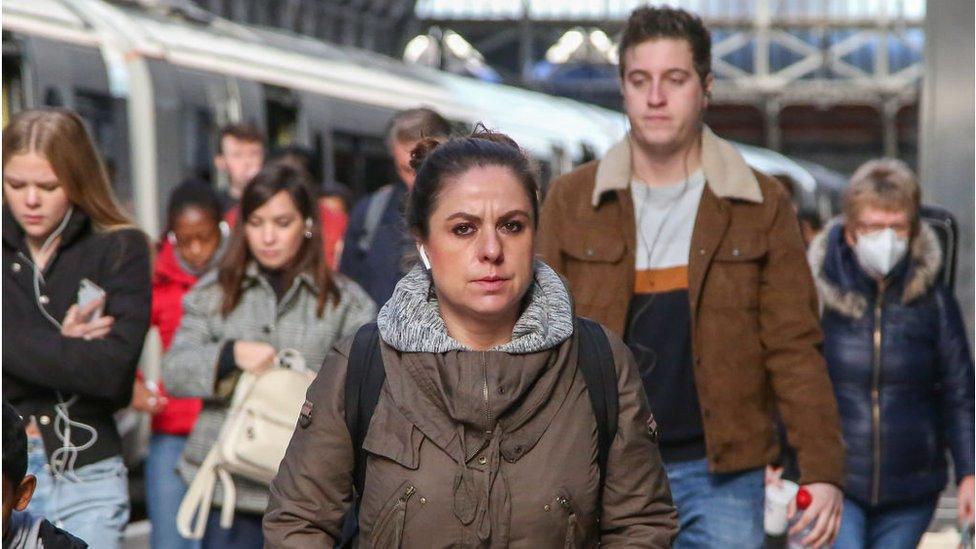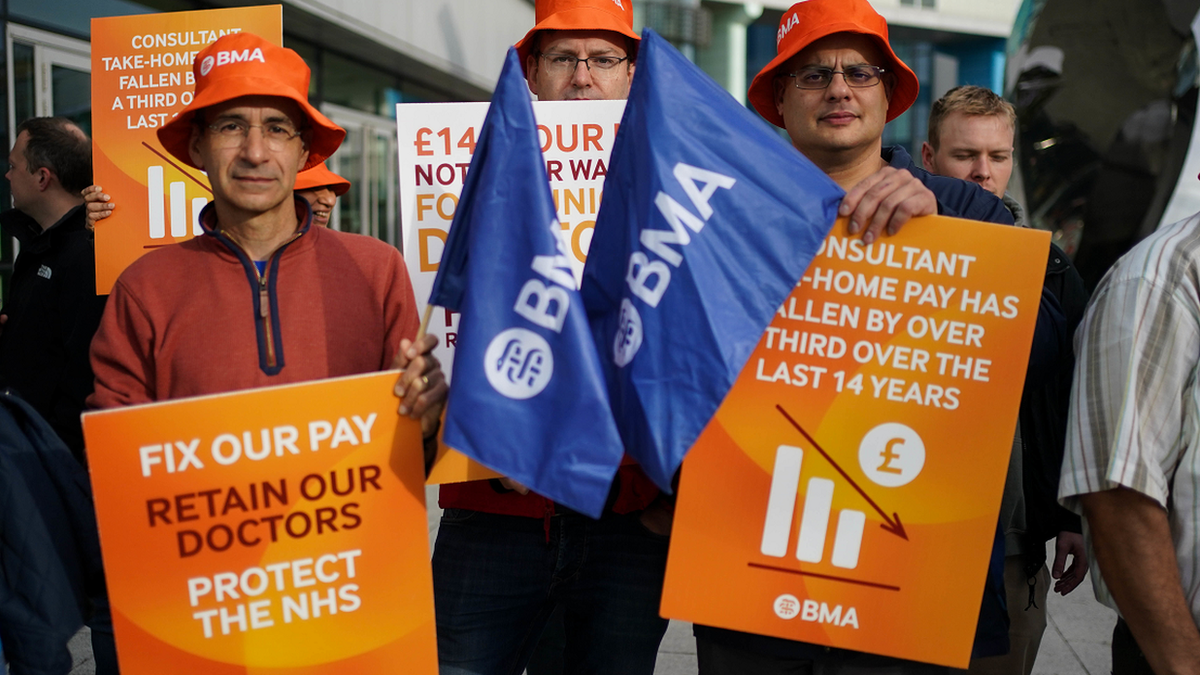RMT union votes for six more months of rail strikes
- Published

Train passengers are facing another six months of potential strikes, after members of the RMT union voted for further industrial action.
The dispute with rail companies has been going on for nearly 18 months already, with workers calling for better job security, pay and conditions.
RMT general secretary Mick Lynch said the vote provided a "decisive mandate".
There was a 63.6% turnout, with 89.9% voting in favour.
"The government, who controls this dispute through a contractual mandate over the train operating companies, must now allow the Rail Delivery Group to put forward a revised offer so we can work towards reaching a settlement," Mr Lynch said.
"However, if no new offer is forthcoming, we will once again take strike action in defence of our members' livelihoods."
The Rail Delivery Group (RDG) said it was "acutely aware" of the impact that the ongoing industrial action was having on passengers, staff and businesses that use the service. It said it wanted to resolve the dispute.
"We call on the RMT executive to bring an end to this dispute and put the deal - which offers job security guarantees and a pay rise of up to 13% to the lowest paid workers - to its members," it said.
No new strike dates have been announced, but the vote in favour allows the RMT to fix strike dates in the run-up to Christmas and beyond.
More than 20,000 members were balloted across 14 companies, the RMT said. However, turnout was lower than in May, with a very slightly lower proportion supporting strike action.
RMT members who work for Network Rail settled their parallel dispute in the spring.
But members at rail firms, including guards and station staff rejected the most recent offer in April from the Rail Delivery Group (RDG) which represents the rail companies. Recent talks are not thought to have resulted in significant progress.
Drivers belonging to a separate union, Aslef, have also failed to agree a deal with employers.
Unions say they want pay offers reflecting the rising cost of living.
But the rail industry is under pressure to save money, after the pandemic left a hole in its finances.
The industry says changes to ways of working need to be agreed in order for pay to go up.
Related topics
- Published18 October 2023

- Published9 May 2024
